Meth Addiction Treatment in California
At Westlake Village Recovery Center, we offer comprehensive meth addiction treatment tailored to each person’s needs. Our programs include individual and group therapy, plus holistic support to address underlying issues and promote lasting healing. Our compassionate team and serene environment help individuals rebuild their lives and regain control one step at a time.
The manufactured nature of meth can also contribute to its volatility. Labs often operate without any regard for safety, with the lack of standards increasing the risk of explosions and/or contamination. Users may unknowingly consume harmful byproducts, intensifying the drug’s impact on the body and brain. Meth’s synthetic origins and unpredictable potency make it one of the most hazardous substances in circulation today.
Symptoms of Meth Addiction
Common symptoms of meth addiction include:
- Increased energy and hyperactivity: Individuals may exhibit excessive movement, talkativeness, or restlessness.
- Rapid weight loss: Meth suppresses appetite, often leading to dramatic physical changes.
- Mood swings and aggression: Users may become irritable, paranoid, or violent without warning.
- Insomnia and sleep disturbances: Extended wakefulness is common, sometimes lasting for days.
- Obsessive behaviors: Repetitive actions (such as skin picking or compulsive cleaning) may appear.
- Neglect of responsibilities: Work, relationships, and personal hygiene often suffer as addiction deepens.
Short- and Long-Term Effects of Meth Addiction
However, these effects are often accompanied by dangerous symptoms such as rapid heart rate, insomnia, and paranoia. As use continues, the long-term consequences become more severe and harder to reverse.
| Short-Term Effects | Long-Term Effects |
| Intense euphoria | Memory loss and cognitive decline |
| Increased energy and alertness | Severe dental decay (“meth mouth”) |
| Decreased appetite | Heart damage and high blood pressure |
| Rapid heartbeat and high anxiety | Paranoia, hallucinations, and psychosis |
| Insomnia and restlessness | Social isolation and relationship loss |
Chronic meth use can lead to irreversible damage to the brain, heart, and other organs. Individuals may suffer from memory loss, emotional instability, and increased risk of stroke or heart attack. Social isolation, financial hardship, and legal issues often follow prolonged addiction.
Treatment Options for Meth Addiction
Outpatient treatment is often the first step for individuals with mild to moderate meth addiction or those transitioning from a higher level of care. It allows individuals to live at home while attending scheduled therapy sessions and support groups.
Key features of outpatient treatment include:
- Flexibility: Ideal for individuals who need to maintain work, school, or family responsibilities.
- Therapeutic support: Includes individual counseling, group therapy, and relapse prevention education.
- Community integration: Encourages individuals to apply recovery skills in real-world settings.
- Cost-effective: Typically less expensive than residential or intensive programs.
Outpatient care is best suited for individuals with a stable home environment and strong support systems. It can also serve as a step-down option after completing more intensive treatment.
An Intensive Outpatient Program (IOP) offers a higher level of care than standard outpatient treatment. It’s designed for individuals who need structured support but do not require 24/7 supervision.
Benefits of IOP for meth addiction include:
- Structured schedule: Individuals typically attend treatment for 3 to 5 days per week for several hours per day.
- Comprehensive care: This treatment combines individual therapy, group therapy, family support, and psychoeducation.
- Skill-building: An IOP includes guidance that focuses on coping strategies, emotional regulation, and relapse prevention.
- Peer support: The structure of an IOP encourages connection through group sessions and shared recovery experiences.
An IOP can be especially effective for individuals who have already completed detox and need continued support to maintain sobriety. It provides a balance between intensive care and personal autonomy.
A Partial Hospitalization Program (PHP) is the most intensive form of outpatient care, often used as an alternative to inpatient treatment. PHP is ideal for individuals with severe meth addiction or co-occurring mental health disorders who need daily therapeutic support.
Core components of PHP treatment include:
- Daily treatment: Individuals attend therapy sessions 5 to 7 days per week, typically for 6 to 8 hours per day.
- Medical oversight: Resources include psychiatric evaluations, medication management, and physical health monitoring.
- Integrated therapies: Treatment often offers cognitive behavioral therapy (CBT), dialectical behavior therapy (DBT), trauma-informed care, and holistic services.
- Transition planning: A PHP program can help individuals prepare for lower levels of care and long-term recovery.
PHPs provide a highly structured environment while allowing individuals to return home at night. It’s a critical option for those needing stabilization without full hospitalization.
Telehealth treatment has revolutionized access to addiction treatment, making it easier for individuals to receive care regardless of location or mobility. For meth addiction, telehealth can be a valuable tool for ongoing support, especially for those in rural areas or with transportation barriers.
Advantages of telehealth treatment include:
- Convenience: Therapy sessions can be accessed from home via secure video platforms.
- Continuity of care: Telehealth treatment can support ongoing engagement during transitions between treatment levels.
- Privacy: Remote access can offer discreet access to counseling and support groups.
- Accessibility: Telehealth addiction treatment is often an ideal solution for individuals with physical limitations, caregiving responsibilities, or geographic challenges.
Telehealth is often most effective when combined with in-person services or when used as part of a step-down plan. It ensures that individuals remain connected to their recovery network even when life circumstances change. But no matter the circumstances, telehealth addiction treatment is frequently a helpful treatment tool that can help support sustainable recovery.
Meth addiction often co-occurs with an occurrence of a mental health disorder. This can include depression disorders, anxiety disorders, PTSD, or bipolar disorder. Dual diagnosis treatment addresses both conditions simultaneously, helping improve overall outcomes and reducing the risk of relapse.
Key elements of dual diagnosis treatment include:
- Integrated approach: Treats substance use and mental health disorders in a coordinated manner.
- Psychiatric support: Includes medication management and regular evaluations by licensed professionals.
- Therapeutic modalities: Uses evidence-based therapies like CBT, DBT, EMDR, and trauma-informed care.
- Holistic services: May include mindfulness training, nutrition counseling, and wellness activities.
- Long-term planning: Focuses on sustainable recovery through aftercare, peer support, and community resources.
Without proper dual diagnosis treatment, individuals may struggle to manage symptoms of one condition while the other worsens. Addressing both mental health concerns and addiction simultaneously is essential for lasting recovery.
Choosing the Right Treatment Path
Factors and considerations someone may take into account when choosing a treatment option include:
- Severity of meth use and withdrawal symptoms
- Mental health history and current diagnoses
- Family and social support availability
- Work, school, or caregiving obligations
- Access to transportation or digital devices for telehealth
Recovery from meth addiction is possible with the right combination of clinical support, personal commitment, and community connection. No matter the treatment format, individuals can rebuild their lives and achieve lasting wellness.

Receive Support for Meth Addiction at Westlake Village Recovery
Our meth addiction treatment programs are tailored to meet individual needs, offering a range of services including detox, residential care, outpatient support, and dual diagnosis treatment. Each program integrates therapeutic modalities such as cognitive behavioral therapy (CBT), trauma-informed care, and holistic wellness practices to address both the physical and emotional aspects of addiction. We provide a safe, structured environment where healing can begin, and progress is nurtured every step of the way.
To learn more or begin your recovery journey, contact us to speak with our admissions team. We’re available to answer questions and help you take the first step toward healing.

